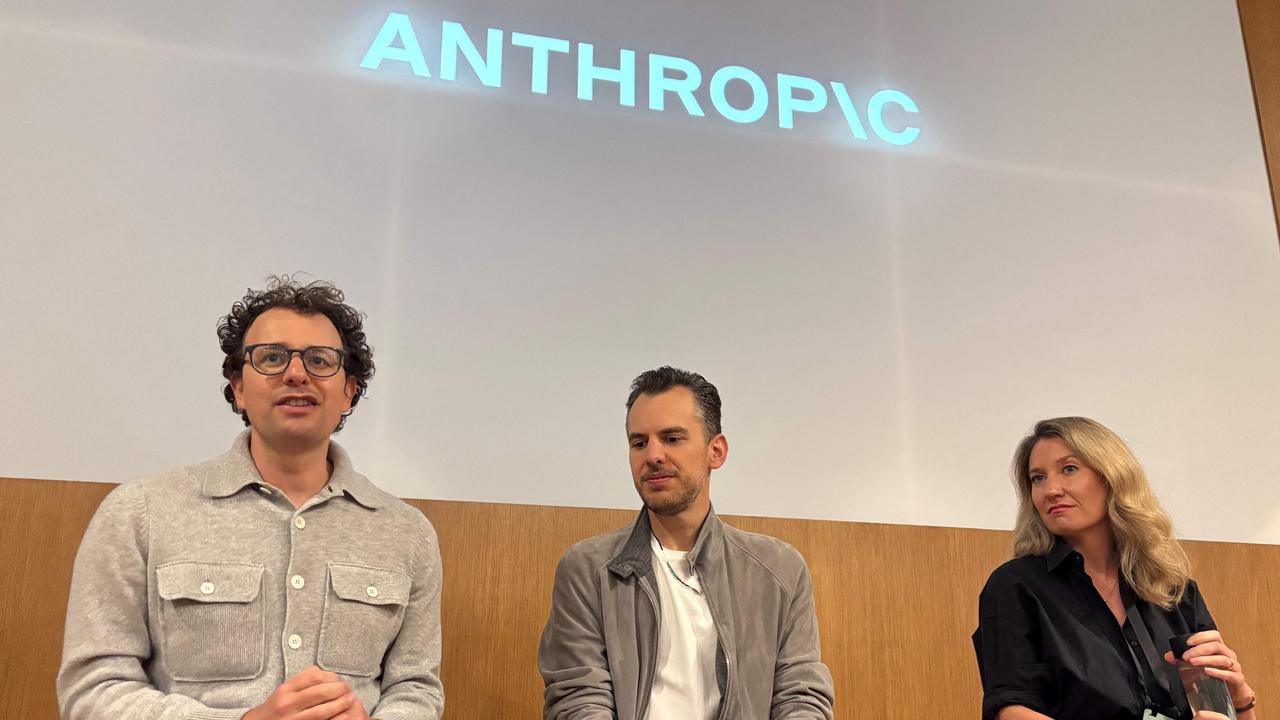Ethical questions raised over Hungry Jack’s AI drive-through
A video showing an Aussie fast-food restaurant using an AI drive-through revealed entry-level jobs - typically taken up by Aussie teens - could be on the chopping block.
The trial of an AI drive-through at a Sydney fast food restaurant has exposed how easily entry-level jobs could be replaced by software, raising ethical questions for businesses.
Hungry Jack’s confirmed it was testing a “new digital voice-activated customer ordering system” at its St Peters restaurant to gauge its “effectiveness”.
Currently, it is only being used at the single franchise in Sydney’s inner west but the company anticipates the trial would be “rolled out to additional restaurants in the coming months”.
“Every 15-year-old just lost their job,” one person commented on a viral TikTok video which brought the virtual assistant to wider attention.
Daswin De Silva, a professor of AI and analytics at La Trobe University, has been closely monitoring how industries and workforces were changing amid the rise of automation.
He said the “disturbing” use of conversational bots for low-level employment like a Hungry Jack’s drive-through attendant raised questions about corporate ethics – something the federal government is being urged to consider when it comes to AI.
“The physical labour they are replacing is negligible compared to potential revenue generation capacity of such a large franchise organisation,” Professor De Silva said.
“This potentially will be receiving a huge backlash and … I’m assuming they’ll have to roll this back because this is a very community embedded organisation.

“And if you’re using AI for the least effort to job in your very large supply chain, that’s something that will be judged harshly in the court of public opinion.
“That’s not ethical, (or) a responsible business practice.”
Discussion around the future of work has been back in the headlines in recent days after the boss of AI agent developer Anthropic predicted bots could wipe out half of white-collar jobs in America.
Professor De Silva said it was important to take the musings of tech bosses with a grain of salt, but added he had seen evidence white-collar jobs in Australia were being affected.
McDonald’s signals an AI makeover
McDonald’s recently revealed it would be looking to give its 43,000 stores (there are an estimated 1,053 in Australia) a technology makeover.
“Our restaurants, frankly, can be very stressful,” the fast food giant’s chief information officer Brian Rice told the Wall Street Journal in March.
“We have customers at the counter, we have customers at our drive-through, couriers coming in for delivery, delivery at curbside. That’s a lot to deal with for our crew,.
“Technology solutions will alleviate the stress.”
The fast food chain has been using Google Cloud since 2023 in a setup known as “edge computing” in a bid to streamline processes in their stores.
They say the technology will help with maintenance of key kitchen equipment like McFlurry ice cream machines along with progressing AI-powered drive-thrus and robotic deep fryers.
McDonald’s has made no mention of whether those advancements could come at the cost of blue-collar jobs typically taken up by teens enjoying their first start in the workforce.
The fast food chain is one of the largest employers in Australia with an estimated 105,000 employees.

Fast food rivals trial AI
It comes after McDonald’s ended its test of AI chatbots at drive-throughs in 100 locations around the US in July last year.
The burger chain removed the AI-based order systems, giving no public reason for ending its test run, according to Restaurant Business.
But it came amid reports of a string of mistakes with diners’ meals – with customers saying they often received things they didn’t order.
Some of the mistakes included adding nine sweet teas to one customer’s order and giving another customer an ice cream cone with bacon on top.
Just months later, KFC Australia began trialling AI drive-through technology in five restaurants across the country, including South Penrith, Wetherill Park, Mt Druitt, Minto, and Frenchs Forest.
Its name was Kacy, but despite the personification, the chain assured no jobs were being replaced by the technology.
It appears to still be up and running, according to users on TikTok.
‘Wealth shift’ from people to tech companies
Greg Sadler, chief executive of AI safety advocates Good Ancestors, said recent research found four in five Australians were concerned about negative outcomes from AI.
He said AI was already outperforming humans at some tasks, and asserted that the majority of Australians found the technology “scary”.
“Impressive AI agents are already being used and will be widely adopted. That could have significant impacts on entry-level jobs, from drive-throughs to medicine and law,” he said.
“AI replacing jobs could result in a significant wealth shift from countries like Australia to a small number of companies, mostly in California or Hangzhou.
“Australian businesses face commercial pressure to adopt AI. A problem they face is that AI can still be unpredictable, and leading AI labs push responsibility for harms onto businesses deploying AI.
“Because AI is a ‘black box’, Australian businesses have limited ability to manage its risks.”
Professor De Silva said responsible uptake of AI could put Australia on the path to increased productivity, and help solve issues historically beyond human reach like global hunger and climate.
But he said the avenue taken by Hungry Jack’s, and other fast-food outlets around the world, only undermined trust in something that has a “bad reputation”.
“And this only reinforces this, so large organisations who have … large revenue have a corporate social responsibility to make sure that the community is part of their organisation.”
Less job adverts since Chat GPT
Anthropic chief executive Dario Amodei last week claimed rapidly improving AI could see US unemployment rate balloon to 20 per cent in “a couple of years or less”.
“Most of them (workers) are unaware that this is about to happen. It sounds crazy, and people just don’t believe it,” he said.
Professor De Silva said there was evidence that less software engineering and programming jobs were being advertised online post the release of Chat GPT in 2022.
“There is a significant drop in the number of software engineering or programming jobs that are being advertised.
“So this is sort of evidence to these predictions that are being made by some of the CEOs of the AI companies.”

He said software jobs were among the “first victims” of the AI boom but replacing physical labour with robots was much further off due to exorbitant costs.
Costs for energy and subscriptions would also keep many small and medium Australian businesses from using AI bots instead of humans, Professor De Silva predicted.
Aussies use AI but don’t trust it
Research compiled by KPMG released in April showed that although 50 per cent of Australian used it regularly, the country ranked low when it came to optimism and trust of AI.
Professor Nicole Gillespie, chair of trust at Melbourne Business School at the University of Melbourne, said believing AI was safe to use was crucial to wider acceptance.
“Yet our research reveals that 78 per cent of Australians are concerned about a range of negative outcomes from the use of AI systems, and 37 per cent have personally experienced or observed negative outcomes ranging from inaccuracy, misinformation and manipulation, deskilling, and loss of privacy or IP,” she said.

Newly minted Industry, Innovation and Science Minister Tim Ayres told an AI conference on Tuesday that Australia must “lean in” to help shape the digital future.
“Core to this national interest is also using the digital economy and AI adoption as foundational to future productivity growth,” he said.
“AI adoption is not a future task for firms and government – it is well and truly underway. The Australian challenge is to lean in to adopt AI to lift productivity and living standards, deliver investment in infrastructure and capability and protect our security.
“To realise the opportunities where we can, and regulate where we must.”
Professor De Silva, however, had a different opinion: “It’s probably safe to be a follower”.
He pointed to the difference between AI regulation in Europe compared to the deregulation of the sector in Donald Trump’s America, where he said “all bets were off”.
“We have to be cautious, not being not being the first mover in this case, it’s advantageous because it’s got a huge potential negative impact.
“And we don’t want to be the victims of that negative impact if it’s done wrong.”






